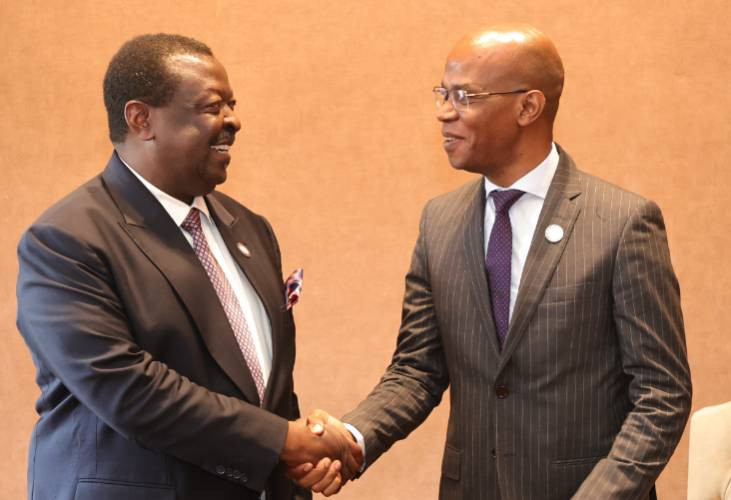×
The Standard e-Paper
Fearless, Trusted News

Kenya and Tanzania have resolved their differences and pledged to work together for the benefit of their people and the region.
This was the message from Prime Cabinet Secretary Musalia Mudavadi, during his meeting with his Tanzanian counterpart Dr January Makamba in Kampala, Uganda.